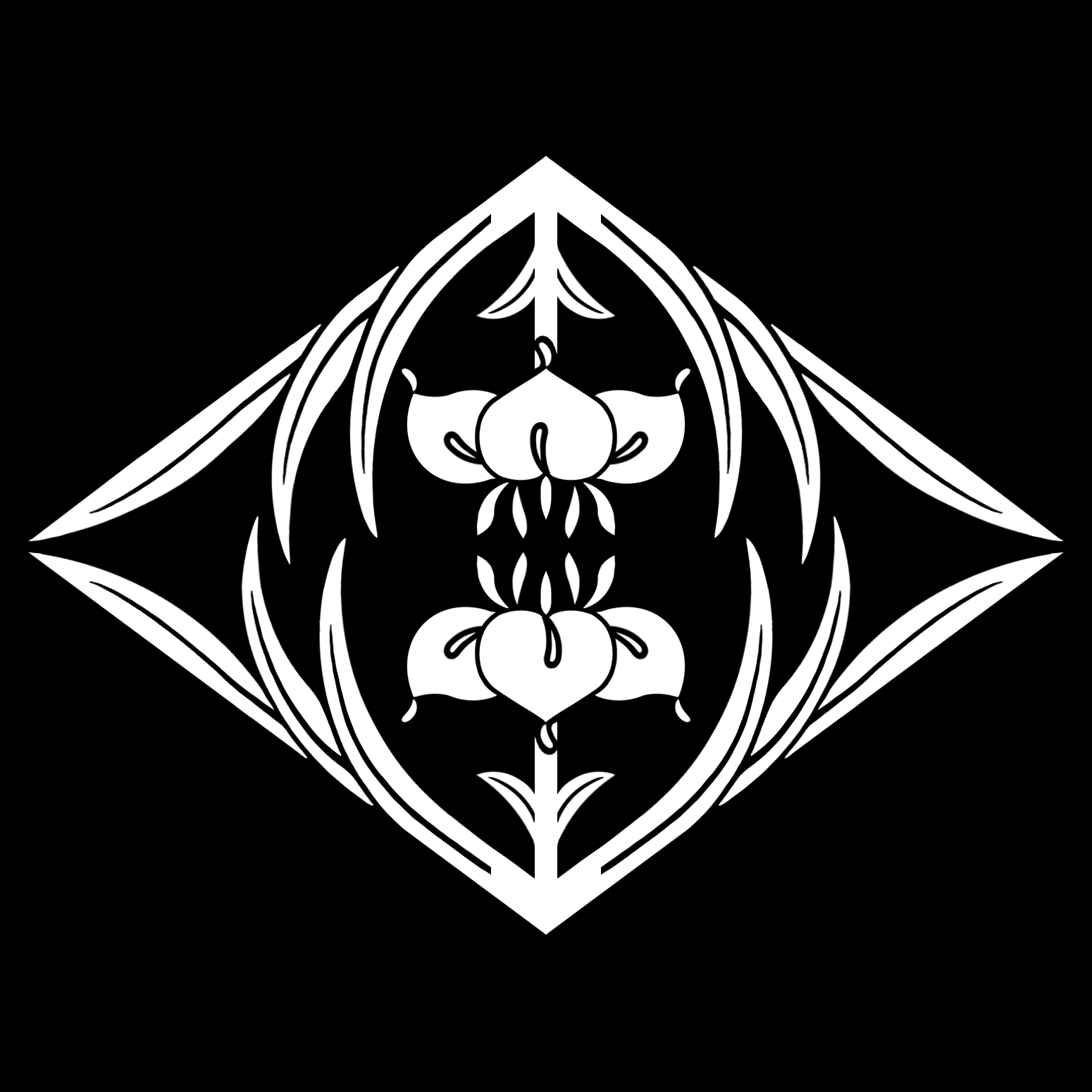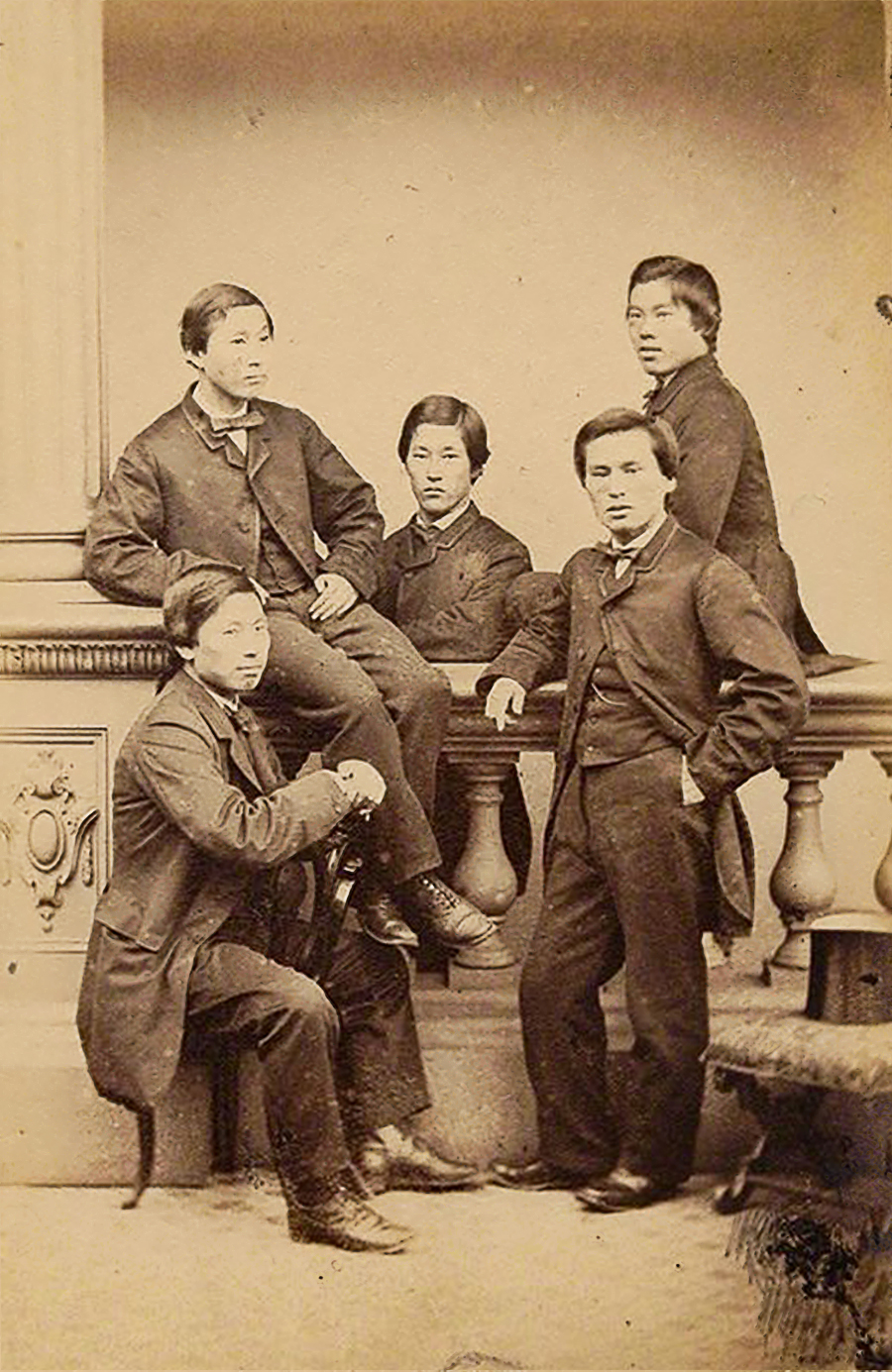|
Kazoku
The was the hereditary peerage of the Empire of Japan, which existed between 1869 and 1947. It was formed by merging the feudal lords (''Daimyo, daimyō'') and court nobles (''kuge'') into one system modelled after the British peerage. Distinguished military officers, politicians, and scholars were occasionally ennobled until the country's defeat in the World War II, Second World War in 1945 (). The system was abolished with the Constitution of Japan, 1947 constitution, which prohibited any form of aristocracy under it, but ''kazoku'' descendants still form the core of the traditional upper class in the country's society, distinct from the nouveau riche. should not be confused with , which is pronounced the same in Japanese, but written with different characters, meaning "immediate family" (as in the film ''Kazoku (film), Kazoku'' above). Origins Following the Meiji Restoration of 1868, the ancient court nobility of Kyoto, the , regained some of its lost status. Several ... [...More Info...] [...Related Items...] OR: [Wikipedia] [Google] [Baidu] |
Nakayama Tadayasu
Kazoku, Marquess Nakayama Tadayasu (Japanese: 中山 忠能, 17 December 1809 – 12 June 1888) was a Japanese nobleman and courtier of the Edo period and then one of the Kazoku of the post-1867 Empire of Japan. He was the father of Nakayama Yoshiko (1836–1907), mother of the Emperor Meiji, who was born and brought up in Nakayama's household. He had the rare honour of being awarded the Order of the Chrysanthemum while he was still alive.''The "Japan Gazette" Peerage of Japan'' (Japan Gazette, 1st edition, 1912), p. 57 Early life The second son of Nakayama Tadayori, a member of the Kuge, or court nobility, in 1821, at the age of eleven, Nakayama was named as Provisional Major-General of the Imperial Guard (Japan), Imperial Guard of the Left.Takeda HideakiNakayama Tadayasu (1809–88)at kokugakuin.ac, accessed 24 September 2013 Nakayama married Matsura Aiko (1818–1906), a daughter of Matsura Seizan, Matsura Kiyoshi (1760–1841), ninth ''daimyō'' (feudal ruler) of Hirado, Nag ... [...More Info...] [...Related Items...] OR: [Wikipedia] [Google] [Baidu] |
Kazoku (film)
is a 1970 Japanese film directed by Yoji Yamada. Plot The Kazami family live on the island of Iōjima, Nagasaki, where Seiichi Kamazi works in a coal mine. With the coal mine closing, Seiichi decides to move to Hokkaido and become a dairy farmer. The family rides the train between the two islands (a roughly 3,000-mile journey). Along the way, they stop in Fukuyama, where Seiichi's brother Tsutomu lives, Osaka, where they attend Expo '70, and Tokyo. In Tokyo, the family's youngest daughter passes away. Genzō, Seiichi's father, reaches Hokkaido but passes away shortly after. He is buried in a Catholic ceremony. Despite Seiichi's misgivings, Tamiko (his wife) convinces him to stay and forge a new life for themselves. Cast * Chieko Baisho as Tamiko Kazami * Hisashi Igawa as Seiichi Kazami * Chishū Ryū as Genzō Kazami * Gin Maeda * Hiroshi Inuzuka as Comedian * Kiyoshi Atsumi , born , was a Japanese actor. He is best known for portraying Tora-san in the Japanese comedy ... [...More Info...] [...Related Items...] OR: [Wikipedia] [Google] [Baidu] |
Itō Hirobumi
Kazoku, Prince , born , was a Japanese statesman who served as the first prime minister of Japan from 1885 to 1888, and later from 1892 to 1896, in 1898, and from 1900 to 1901. He was a leading member of the ''genrō'', a group of senior statesmen that dictated policy during the Meiji era. Born into a poor farming family in the Chōshū Domain, Itō and his father were adopted into a low-ranking samurai family. After the opening of Japan in 1854, he joined the nationalist ''sonnō jōi'' movement before being sent to England to study at University College London in 1863. Following the Meiji Restoration of 1868, Itō was appointed the junior councilor for foreign affairs in the newly formed Empire of Japan. In 1870, he traveled to the United States to study Western currency, and subsequently helped establish Japan's taxation system in 1871. Itō then set off on another overseas trip with the Iwakura Mission to the U.S. and Europe. Upon his return to Japan in 1873, he became a f ... [...More Info...] [...Related Items...] OR: [Wikipedia] [Google] [Baidu] |
Prince
A prince is a male ruler (ranked below a king, grand prince, and grand duke) or a male member of a monarch's or former monarch's family. ''Prince'' is also a title of nobility (often highest), often hereditary, in some European states. The female equivalent is a princess. The English word derives, via the French word ''prince'', from the Latin noun , from (first) and (head), meaning "the first, foremost, the chief, most distinguished, noble ruler, prince". In a related sense, now not commonly used, all more or less sovereign rulers over a state, including kings, were "princes" in the language of international politics. They normally had another title, for example king or duke. Many of these were Princes of the Holy Roman Empire. Historical background The Latin word (older Latin *prīsmo-kaps, ), became the usual title of the informal leader of the Roman senate some centuries before the transition to empire, the '' princeps senatus''. Emperor Augustus establishe ... [...More Info...] [...Related Items...] OR: [Wikipedia] [Google] [Baidu] |
Tokyo
Tokyo, officially the Tokyo Metropolis, is the capital of Japan, capital and List of cities in Japan, most populous city in Japan. With a population of over 14 million in the city proper in 2023, it is List of largest cities, one of the most populous urban areas in the world. The Greater Tokyo Area, which includes Tokyo and parts of six neighboring Prefectures of Japan, prefectures, is the most populous metropolitan area in the world, with 41 million residents . Lying at the head of Tokyo Bay, Tokyo is part of the Kantō region, on the central coast of Honshu, Japan's largest island. It is Japan's economic center and the seat of the Government of Japan, Japanese government and the Emperor of Japan. The Tokyo Metropolitan Government administers Tokyo's central Special wards of Tokyo, 23 special wards, which formerly made up Tokyo City; various commuter towns and suburbs in Western Tokyo, its western area; and two outlying island chains, the Tokyo Islands. Although most of the w ... [...More Info...] [...Related Items...] OR: [Wikipedia] [Google] [Baidu] |
Peerage
A peerage is a legal system historically comprising various hereditary titles (and sometimes Life peer, non-hereditary titles) in a number of countries, and composed of assorted Imperial, royal and noble ranks, noble ranks. Peerages include: Australia * Australian peers Belgium * Belgian nobility Canada * Canadian peers and baronets#Canadian nobility in the aristocracy of the United Kingdom, British peerage titles granted to Canadian subjects of the Crown * Canadian peers and baronets#Canadian nobility in the aristocracy of France, Canadian nobility in the aristocracy of France China * Chinese nobility France * Peerage of France * List of French peerages * Peerage of France#Peerage of Jerusalem, Peerage of Jerusalem Japan * Kazoku, Peerage of the Empire of Japan * House of Peers (Japan) Portugal * Chamber of Most Worthy Peers Spain * Chamber of Peers (Spain) * List of dukes in the peerage of Spain * List of viscounts in the peerage of Spain * List of barons in the peerag ... [...More Info...] [...Related Items...] OR: [Wikipedia] [Google] [Baidu] |
Prince Tokugawa Iesato
A prince is a male ruler (ranked below a king, grand prince, and grand duke) or a male member of a monarch's or former monarch's family. ''Prince'' is also a title of nobility (often highest), often hereditary, in some European states. The female equivalent is a princess. The English word derives, via the French word ''prince'', from the Latin noun , from (first) and (head), meaning "the first, foremost, the chief, most distinguished, noble ruler, prince". In a related sense, now not commonly used, all more or less sovereign rulers over a state, including kings, were "princes" in the language of international politics. They normally had another title, for example king or duke. Many of these were Princes of the Holy Roman Empire. Historical background The Latin word (older Latin *prīsmo-kaps, ), became the usual title of the informal leader of the Roman senate some centuries before the transition to empire, the ''princeps senatus''. Emperor Augustus established the forma ... [...More Info...] [...Related Items...] OR: [Wikipedia] [Google] [Baidu] |



